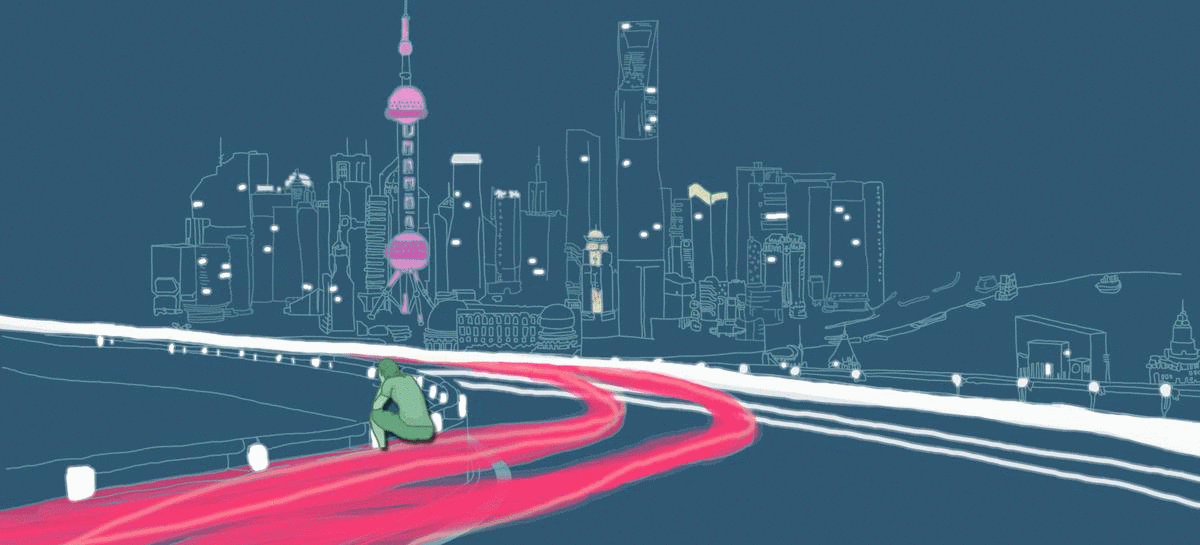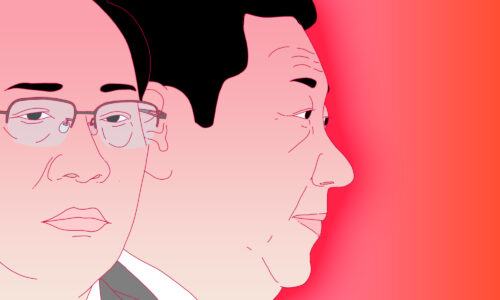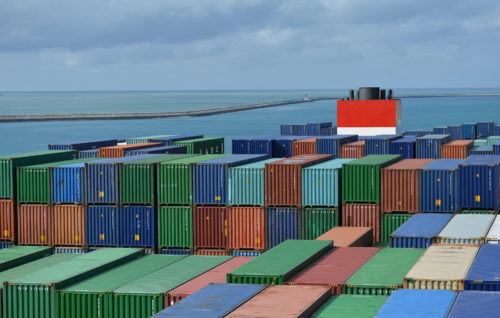China’s Happiness Paradox

By all accounts, China’s people should be happy: The country has been on the ascent for more than a generation, and is now richer and more influential than ever. Yet study after study has shown that the Chinese are struggling to find individual contentment in step with the country’s general fortunes. What’s causing the disparity?
Illustration by Marjorie Wang



“Are you happy?”
The question took me off guard. I was in Beijing for a brief visit, seated in a nearly empty restaurant one evening across from Qiu, a former coworker of mine. In the year prior, Qiu had left her old job, moved away to Shanghai with her boyfriend, then moved back again a few months later, and now was working part-time with a few different agencies. On the whole she seemed to be doing well, yet I couldn’t help but think that her question — are you happy? — was prompted by misgivings of her own.
Qiu and I talked for a couple of hours that night, and in the weeks after, as I passed through the country reconnecting with old friends, the conversations seemed to play out the same way. We would meet, chat, catch up, but once the pleasantries were over, signs of despair would slip through — sighs of apprehension, complaints about work and personal lives, plaintive questions, plans to escape from whatever for something else, something better.
I began to suspect that, somehow, nearly everyone I knew was nursing some hidden unhappiness. And perhaps much of it was the perfectly ordinary unhappiness of unfulfilling work, strained finances, and troubled relationships. But then again, maybe there was more to it than that.
Over the last several decades, happiness has become a serious topic of research and policy engineering, such that there is now a sizable body of research, with organizations like Gallup, Pew, and others providing regular data from countries around the world. And what that data says about China presents an enigma.
In this year’s World Happiness Report — published under the auspices of the UN and compiled by an independent panel of researchers with data from multiple international surveys — China scored in the lower 50 percentile. Its ranking at No. 93 puts it behind the likes of Libya, the Philippines, and Guatemala. More concerning, this latest ranking represents a drop from previous years.
By all accounts, China’s people should be happy: The country has been on the ascent for more than a generation, and is now richer and more influential than ever. Yet how can there be such a disparity between the apparent prosperity of a nation and the happiness of its citizenry? China is the world’s greatest economic success story, a miracle of development, and yet its people seem to have little cause for joy.
Naturally, this is a tricky subject for social scientists. Happiness is hard enough to define, let alone quantify, and some researchers even object to the use of the word, preferring a more generic term like “wellbeing.” Even so, all the different samples, methods, and surveys used for international rankings on this subject have delivered consistent results. Countries with high life expectancy and high GDP growth — as China has — generally have a high degree of happiness. And yet, no fewer than four surveys show a shallow, U-shaped bend in happiness in China in the late-1990s and early-2000s. Since then, happiness has haltingly inched back upward, yet hardly in keeping with the pace of China’s growth. Even now, the average satisfaction with life in China isn’t much different than it was 30 years ago, when the country’s economy was about 3 percent of what it is today.
Richard Easterlin, a pioneer of the economic study of happiness, observed a paradox in 1974: after a certain point, happiness stalls out even if one’s income continues to grow. His “Easterlin Paradox” has led some economists to consider alternatives to GDP, like Bhutan’s famous Gross National Happiness. But China’s case is an outlier, as the average happiness in the country does not seem to correlate with any of the usual suspects: not GDP, not pollution, not corruption or the perception of it, not civil liberties, not even income inequality. According to one study co-authored by Easterlin himself, two factors that do correlate with China’s decline in happiness are unemployment and a deficient social safety net.
Perhaps none of this is surprising. Though the rising tide has lifted many boats in China, it has done so at the cost of its people’s sense of security and stability, in ways that go well beyond pure economics.
![]()
In the small hours one morning, Gao, a friend of several years, sent me a message out of the blue: “It’s not easy being someone who’s useless to the world.” I asked him what was the matter, but when he finally responded, he parried the question, attributing the text to a momentary downturn of mood.
A young man from southern China, Gao moved to Beijing a few years ago to work at a startup, which folded before ever really getting off the ground. He then worked for a small online video ad company, gigged for the co-founder of his previous company for a while, took time off to travel, and then settled for working at one of China’s better known internet companies as an editor churning out daily fluff pieces. At 30 years old, he is the oldest member of the team.
Well-educated, Gao has been overqualified for each of his underpaying jobs. Even though he rents a cheap room on the city’s periphery, living with several strangers, the burden of meeting rent in the capital is a sore subject he returns to repeatedly. When I caught up with him over lunch in Beijing earlier this summer, he quickly informed me that he was giving up on the city. “Maybe one more year,” he said, and then he would move back home, much as he was loath to. In his own words, he had come to Beijing to “escape” his hometown. Now, he is escaping Beijing.
Gao’s story has its own particulars, but its outlines seem familiar. Hardly a day goes by when there isn’t a news report about someone in China who has been shortchanged by the country’s growth, such that the stories are sortable by trope. There are the young graduates in major cities who are corralled into crowded living spaces, and for whom underemployment is rife. There are the white-collar workers who labor under the so-called 996 work culture — which stands for 9 a.m. to 9 p.m., six days a week — while workers of all stripes, both skilled and unskilled, face poor pay, long commutes, demanding bosses, and mind-numbing routines. Everyone frets about dizzying housing prices. There are the young single people (and, of course, the increasingly not-so-young single people) facing pressure from multiple directions to find a spouse. In the countryside, there are children and the elderly left behind and cut off; in the cities, locals and migrants alike struggle with alienation; and online, personal accounts of loneliness, anxiety, failure, and thwarted dreams fit into their own genre and regularly go viral. One particularly noteworthy essay was written last July, called “In Beijing, 20 Million People Pretend to Live”; it was viewed more than five million times within a day.
All of these things are, in their varying ways, both causes and symptoms of discontent, and many can be traced in part or in whole to the wayward effects of economic development and social change.
Gao noted how, in the past several years, online talk of diaosi, or “losers,” has tended to give way to talk of foxi — literally “Buddhism,” but really a jocular expression for living without ambition. It’s just one of a series of terms that China’s sardonic online communities have churned up to crystallize some part of the modern experience: zhai, a term that originally referred to otaku culture but now doubles as a descriptor for those who prefer to sequester themselves at home; sang, a sense of disaffection and surrender of life ambitions; fenjing, “spiritually Finnish,” to describe those who are discomforted by social engagement; danshen gou, or “single dogs,” an expression for those not in romantic relationships. This vocabulary tends to be self-deprecating and half-joking, but neologisms like these suggest that there is something new going on, a friction between popular expectations and personal limitations that generates disappointment, doubt, and disaffection.
For those who, like Gao, have been passed over by the country’s prosperity train, it is easy to understand why their individual happiness feels out of step with the country’s general fortunes. Many are scrambling, hustling, and struggling just to keep up. They have just cause for discontent. But even for others who have reaped the benefits of economic growth, happiness is still not guaranteed.

The World Health Organization estimates that up to 54 million people in China suffer from clinical depression. And at the extreme end of depression and mental health issues is the problem of suicide.
In the 1990s, the suicide rate in China was one of the highest in the world. Fortunately, the overall rate has dropped, and is said to be lower than the global average, at least according to official estimates. But for certain subgroups, the figures remain alarmingly high. One independent study estimated that as of 2015, suicide rates for elderly people in the countryside may be as high as 65.6 per 100,000, or 1 out of every 1,524.
As it happens, one of the foundational texts of sociology is On Suicide, written in 1897 by the French scholar Emile Durkheim. At the time, suicide rates had surged in the major urban centers of Europe, and Durkheim argued that this was driven in part by what he called anomie (from the Greek “without law/order”). Europe was undergoing profound transformations; when people moved from the countryside to the cities, they suffered from an absence of community and norms that could provide a sense of meaning and direction. The result was discontentment. Importantly, Durkheim suggested that times of prosperity could be as much a risk to general happiness as economic depression: “Every disturbance of equilibrium, even though it achieves greater comfort,” could leave people unsettled, uncertain of where they stood in the world, and ultimately, unfulfilled.
Later social researchers continued to explore what happens when societies scupper old rules and values and leave everyone to their own devices. One pattern, called “individualization,” describes the dismantling of the old institutional buffers that had once directed people’s lives down specific and narrow courses. For example, in the Maoist years, work and housing were doled out by the state; before that, occupations and even marriage partners were decided for people by their parents. Now, most things — one’s job, one’s partner, where one lives and how — has to be considered, assessed, and decided individually; nothing is a given. And while no one should envy a life without the freedom to choose, having too many options can leave many people second-guessing themselves, and doubting themselves, and wondering if their destination was worth the journey.
In Shanghai, I paid a visit to Jiang. A medical professional in his mid-30s, Jiang has everything that a good, modern Chinese citizen is supposed to want: a stable job with a better-than-average income, a marriage, a child, a car, and even his own home. By the standards of the small town in northern China where he grew up, he has been hugely successful.
And yet he is not quite happy. In the past several years he’s vacillated over whether he should jump ship for a job at another hospital, go abroad to pursue a more advanced degree, or just abandon his current career entirely and start over in a new line of work. He has been repeatedly frustrated with office politics and the limited prospects for advancement in his department. After all that, he also worries about paying the mortgage. When I asked him if he was happy, his answer was simple: “Of course not.”
Jiang points to friends and old classmates of his who work in other hospitals. Quite a few of them, he admits, envy him for his life in Shanghai and the opportunities he’s had to travel abroad. But — and fully aware of the irony — Jiang has envied many of them in return: If some of them work longer hours, they also have more prestigious appointments; if some of them live in less enviable lower-tier cities, they at least have larger homes and smaller debts. “I think it’s my fault,” Jiang says. “I shouldn’t compare myself to others, I shouldn’t envy them. I should live my own life, [but] it’s my fault, so I kick myself over it.”
In Qian Zhongshu’s classic novel Fortress Besieged, one character cynically describes the institution of marriage as like a city under siege: those on the outside want in, but those on the inside want out. There are seemingly other “besieged cities,” now. Some struggle to break into a lucrative industry, while many of those already on the inside groan under the daily stresses and dream of escape. Other besieged cities are almost literal. For decades, migrants have flocked to the cities and continue to do so, yet there is a proliferation of stories of people who have ditched their big-city jobs to live in the countryside or travel the world. Everyone seems to believe there must be something more, or better, elsewhere.
In China today, there is a superabundance of possibilities — of ideals, ambitions, and goals to pursue — but with no consensus, no norms, for how to choose from among them, or reconcile conflicts that arise from wanting too much. No one can have it all, especially if the definition of “all” is always shifting and expanding.

There is one final paradox to the tale of China’s woes. According to the research organization Ipsos, the absolute majority of people worldwide believe their own countries are headed in the wrong direction; globally, pessimism reigns. China, however, insists on being an exception: an astounding 94 percent of Chinese respondents say their country is moving on the right track, making China easily the most “optimistic” country in the sample.
It is hard to know what significance to assign that statistic when it is laid alongside China’s lackluster ratings on personal wellbeing. The dissatisfactions which now prevail are, by varying degrees, both because of and in spite of China’s “development” — a word that, in Chinese, has for several decades been weighted with far more meaning than the English translation can convey, and yet has also never been all that well defined. Likewise, since first promoting the notion six years ago, President Xi Jinping’s government has never truly defined what the Chinese Dream might be, though it is generally agreed that, whatever it really is, it is a thing of the state, and bears little relevance to the lives of ordinary people.
And that is part of the problem. Economically, China has thrived, and written into all the reform policies and the rhetoric about the country’s bright future has been the implicit promise that life will get better. And by many discrete and objective measures, that is the case. But, with the possible exception of economic ministers, no individual’s happiness actually hinges on GDP figures. Nor, for that matter, can national greatness in the abstract translate to individual wellbeing. On some level, it appears as if the fortunes of the country can disconnect completely from those of the very people who make up the country.
There are all too many in China who are only getting by, forgotten or cheated by the country’s vaunted development. But even those who have scored victories in the game of life seem to somehow have less than they had hoped for. To whatever extent policy mechanisms and economic engineering can uplift people’s wellbeing in theory, they seem to have fallen short in practice, and to the extent that personal wellbeing is beyond the scope of a government to influence, then the grand projects of development and the “Chinese Dream” may give false hope.
There is no one answer to the question of why China is discontent. The causes are just as often idiosyncratic as they are universal, and if they are sometimes economic, historical, or social, they may also defy easy classification. The question of why is therefore perhaps less important than the fact itself: China is less than happy, in spite of its progress, and because of it.






